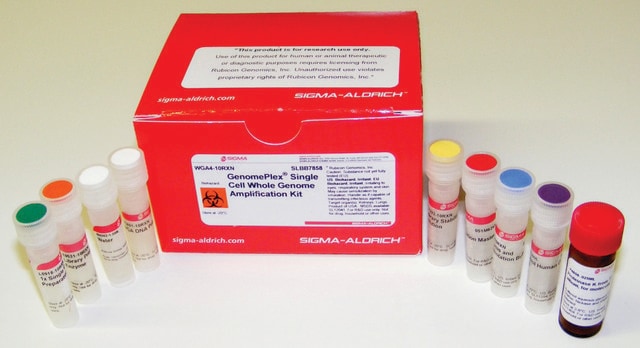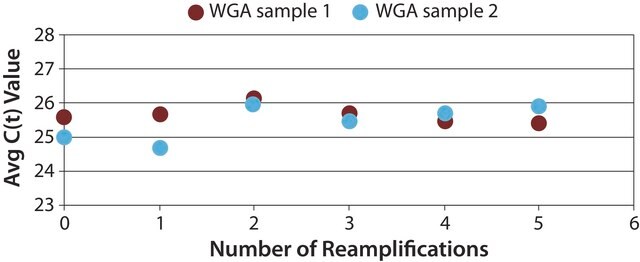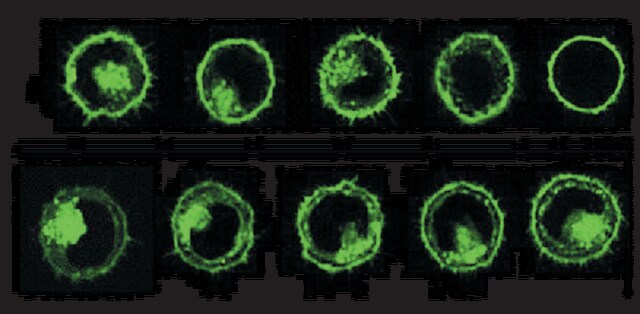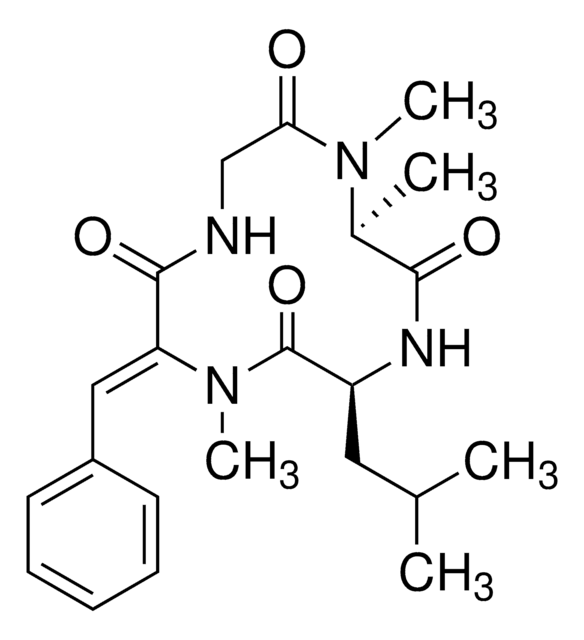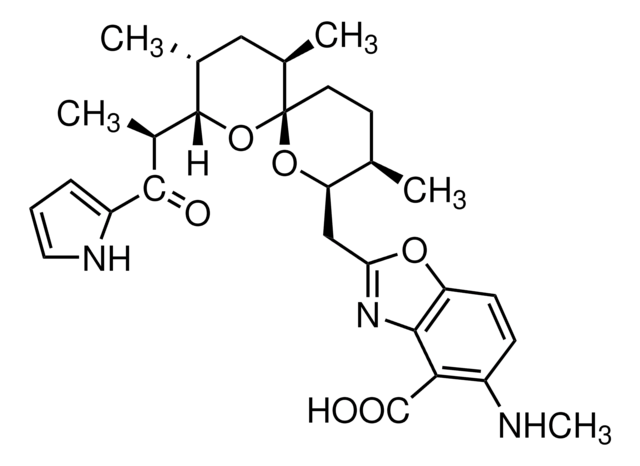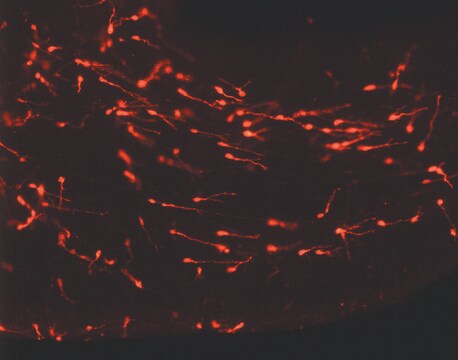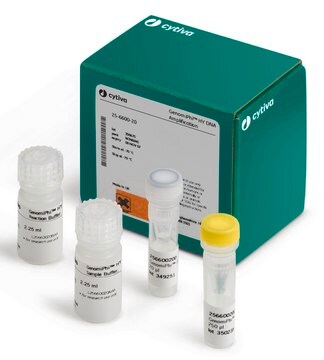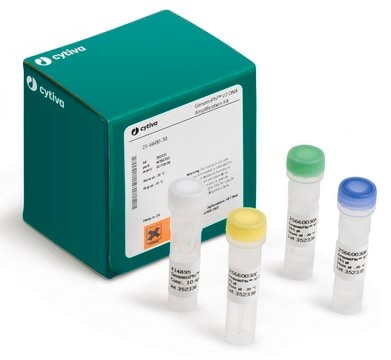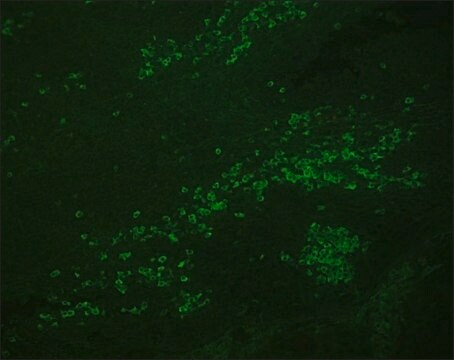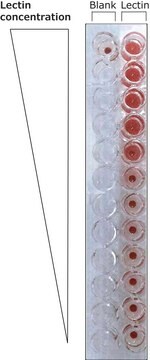WGA1
GenomePlex® Whole Genome Amplification (WGA) Kit
Kit for whole genome amplification from a variety of DNA sources including FFPE tissue
About This Item
Prodotti consigliati
tecniche
whole genome amplification: suitable
Condizioni di spedizione
wet ice
Temperatura di conservazione
−20°C
Descrizione generale
WGA Kit utilizes a proprietary technology based on random fragmentation of genomic DNA and conversion of the resulting small fragments to PCR-amplifiable library molecules flanked by universal priming sites. WGA is achieved by PCR amplification of the library molecules using universal oligonucleotide primers.
GenomePlex method allows the researcher to generate a representative, ~500-fold amplification of genomic DNA. The amplification yield is dependent on the purity and amount of starting material. This kit contains all the required reagents to perform library preparation and fragmentation.
Applicazioni
Caratteristiche e vantaggi
- Higher yield from minimal template: Amplification of nanogram amounts (10ng) of genomic DNA to microgram yields (5-10 μg) in less than about three hours
- Nanograms of samples can be preserved at –20 °C for future use
- Choose from a variety of DNA sources: whole blood, buccal swab, blood card, plant, soil, and formalin-fixed paraffin-embedded tissue (FFPE)
- Compatible with a wide variety of downstream applications such as TaqMan® and BeadArray assays
- Universal primers
- Whole-genome representation with no detectable bias
- Increased accuracy in amplification produces no amplicon in the negative control reactions
Altre note
Note legali
I componenti del kit sono disponibili anche separatamente
- W4502Water, Nuclease-Free Water, for Molecular BiologySDS
Prodotti correlati
Raccomandato
Codice della classe di stoccaggio
10 - Combustible liquids
Classe di pericolosità dell'acqua (WGK)
WGK 3
Punto d’infiammabilità (°F)
Not applicable
Punto d’infiammabilità (°C)
Not applicable
Scegli una delle versioni più recenti:
Possiedi già questo prodotto?
I documenti relativi ai prodotti acquistati recentemente sono disponibili nell’Archivio dei documenti.
I clienti hanno visto anche
Protocolli
Archived formalin-fixed and paraffin-embedded (FFPE) tissue collections represent invaluable resources for studying pathogenesis of cancer and a variety of other diseases.
Genomic DNA from soil samples can be easily damaged by nucleases and contaminating debris resulting in low DNA yields. As a result, the researcher’s ability to perform downstream analysis may be compromised. After isolating DNA from the soil sample, the GenomePlex® Whole Genome Amplification Protocol is followed
GenomePlex is a Whole Genome Amplification (WGA) method that allows the researcher to generate a representative, 500-fold amplification of genomic DNA
This protocol provides a simple and convenient method to isolate, amplify and purify genomic DNA from saliva
Contenuto correlato
GenomePlex is a Whole Genome Amplification (WGA) method that allows the researcher to generate a representative, 500-fold amplification of genomic DNA
GenomePlex® Whole Genome Amplification is the method of extracting DNA from the animal sample. GenomePlex® products have been used to amplify genomic DNA from chicken, porcine, bovine, fish, and shrimp source.
Il team dei nostri ricercatori vanta grande esperienza in tutte le aree della ricerca quali Life Science, scienza dei materiali, sintesi chimica, cromatografia, discipline analitiche, ecc..
Contatta l'Assistenza Tecnica.
